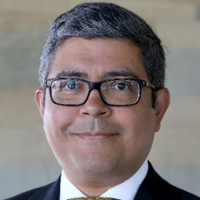Centre for Research in Public Health and Community Care (CRIPACC)
About us
The Centre for Research in Public Health and Community Care (CRIPACC) is an internationally renowned multidisciplinary research centre focused on producing research that makes a difference to people’s lives by improving the quality of health and social care services and promoting health and wellbeing. At the last assessment of research quality (REF 2021) over 80% of our research was rated as world-leading or internationally excellent.
The Centre, which is part of the School of Health, Medicine and Life Sciences brings together over 30 researchers with backgrounds in nursing, primary care, public health, epidemiology, social work, the social sciences, mental health and nutrition. Key areas of research activity include:
- Communities, Young People and Family Lives
- Place Based Ageing
- Public involvement and engagement in health and care
Our involvement with the NIHR
The CRIPACC team is involved in the National Institute of Health Research (NIHR) Applied Research Collaboration (ARC) for the East of England, along with colleagues from the universities of East Anglia, Cambridge, and Essex.
The ARC brings together health and social care professionals, researchers, and the communities they serve. Professor Wendy Wills is Director of the NIHR ARC East of England. Kathryn Almack leads the Ageing and Multimorbidity theme, Elspeth Mathie co-leads the Inclusive Involvement in Research for Practice-led Health and Social Care theme, and Claire Thompson leads the Prevention and Early Detection in Health and Social Care theme.
We are also part of the NIHR’s Public Health Intervention Responsive Studies Teams (PHIRST) initiative. Professor Julia Jones is co-Chief Investigator of PHIRST Connect with colleagues from UH and the Universities of Birmingham and Ulster. The Chief Investigator is Professor Katherine Brown at UH. PHIRSTs work with local government organisations from across the UK to evaluate ongoing public health interventions. The aim of the scheme is to inform practice and policy decisions and contribute to the wider public health knowledge base. PHIRST evaluations are designed to be completed in timescales relevant to local government and are co-produced with local stakeholders. PHIRST Connect embeds public contributors onto each project who work alongside academic researchers to help shape each evaluation and provide a different perspective based on their lived experiences.
Our Professional Doctorates
We offer a wide range of opportunities to undertake research degrees in health and social care related disciplines; whether that be one of our two Professional Doctorates, the Doctorate in Public Health and Doctorate in Health and Social Care, or via one of our current 13 PhD routes.
With the most recent UK assessment of research quality (REF 2021) reporting that over 82% of the research conducted in the School of Health and Social Work, and associated Research Centres, was rated as world-leading or internationally excellent, we pride ourselves in supporting our Post Graduate Research students to develop themselves and their research skills while planning and delivering their own original doctoral-level research. Students are supported via the supervision and guidance of two or more academic members of staff as supervisors; and further supported by the University’s Researcher Development Programme, together with bespoke workshops and sessions delivered online and in our Departmental Research Hub.

Professor Alejandro Quiroz Flores
Centre Director
Professor Alejandro Quiroz Flores is the Director of the Centre for Research in Public Health and Community Care (CRIPACC). Previously, Professor Flores was Professor of Government and Deputy Director of the Business and Local Government Data Research Centre at the University of Essex. Between 2019 and 2024, Professor Flores was the Chief Scientific Adviser to Essex County Council, based at the Institute for Analytics and Data Science, University of Essex. He obtained his PhD in Politics at New York University and his MPhil at the University of Oxford. Professor Flores specialises in Econometrics, Machine Learning, and Political Economy, and their applications to public health and public policy. His work has appeared at PLOS ONE, Global Environmental Change, and British Journal of Political Science, among others. His most recent books are Survival Analysis: A New Guide for Social Scientists (2022), and The Selection and Tenure of Foreign Ministers Around the World (2024), both by Cambridge University Press.
Meet the team
- Professor Alejandro Quiroz Flores: Director
- Dr Elspeth Mathie: Assistant Director
- Hannah Smith: Executive Assistant and Project Officer 01707 285286
- General enquires: 01707 284878
- Lindsey Parker: 01707 284670 Senior Administrator, CRIPACC
- Sonya Prime: 01707 285992 Public Involvement in Research Group (PIRg) and Service User and Public Involvement Core Group (SUPI) Administrator
- Teresa Tinworth: Projects Administrator
- Research Co-Ordinator - to be appointed
- Harsha Ladha: Research Administrator






